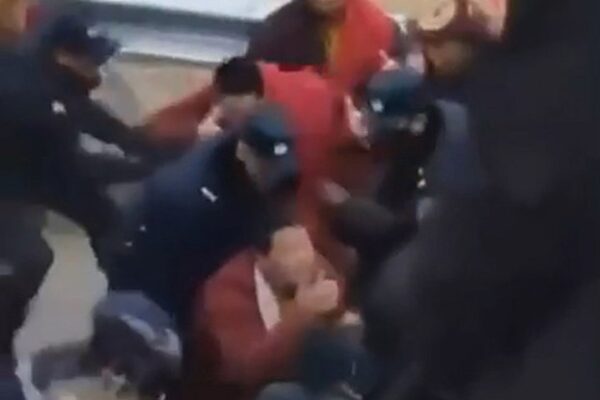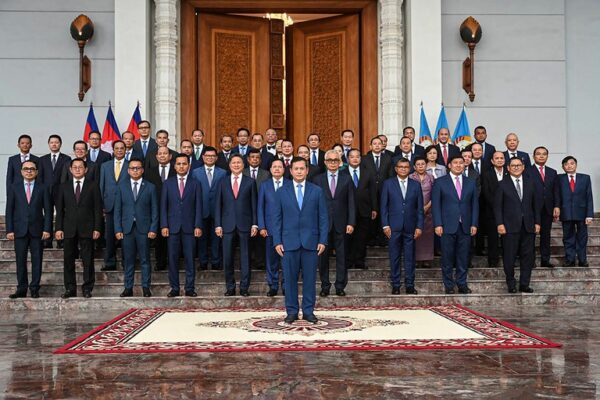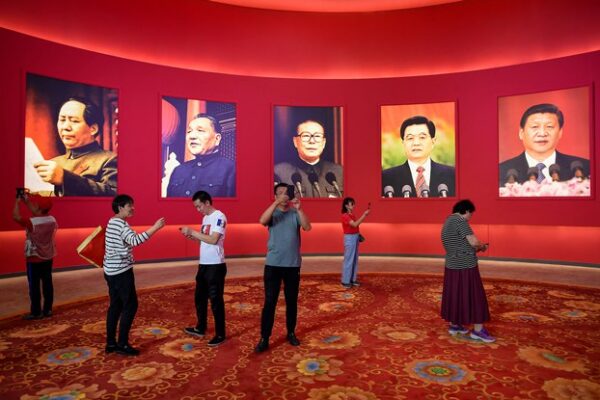Frank Dikötter, author of the “People’s Trilogy” about China under of Mao Zedong, has been chair professor of humanities at the University of Hong Kong since 2006. He recently published “China After Mao,” in which he argues that claims that the Chinese Communist Party has significantly changed direction in the post-Mao era are a misreading by those outside the country who “live in a fantasy world.” He told RFA Mandarin in a recent interview that Chinese leaders have been very consistent in their messaging on political reform, and their economic goals and determination to maintain their dictatorship at all costs. The interview has been edited for length and clarity. RFA: What is the difference between the Mao era and the post-Mao era? Dikötter: So, what have [Chinese leaders] been telling us? A very simple story: China is in the process of “reform and opening up.” So, there will be economic progress, and with economic change there will be political progress. China will become first a capitalist country and then a democracy. Of course, what has happened is the exact opposite. If you read the documentation carefully, you find out that never at any one point did Deng Xiaoping, Hu Yaobang, Zhao Ziyang, Jiang Zemin, all the way up to today, never did a single leader ever say, “We want a capitalist system.” They all said the exact opposite, that they would uphold the socialist road. It is in the Constitution. People take pictures in front of portraits of, from left, the late Chinese chairman Mao Zedong and former Chinese leaders Deng Xiaoping, Jiang Zemin, Hu Jintao and current president Xi Jinping at an exhibition in Beijing, Sept. 26, 2019. (Wang Zhao/AFP) All along, they were very clear about what they wanted. They wanted to reinforce the socialist economy. So what is a socialist economy? [It’s] not necessarily something that you have under Mao. A socialist economy is one where the state has or controls the means of production. Money, labor, fertilizer, energy, transportation, all these are the means of production. They all belonged to the state. Today the money belongs to state banks. The land belongs to the state. Energy is controlled by the state. Large enterprises are controlled by the state. That was their goal, and they achieved it. Workers are seen near pumpjacks at a China National Petroleum Corp oil field in Bayingol in northwestern China’s Xinjiang region, Aug. 7, 2019. (Reuters) The second point is democratization. At no point did anyone say they wanted to have a separation of powers. On the contrary, Zhao Ziyang said very clearly back in 1987 that China would never have the separation of powers. Xi Jinping also made that very clear. But nobody in the West heard them, because they didn’t want to hear it. RFA: Has everyone misjudged the Chinese Communist Party? Dikötter: There is a profound failure on the part of a great many people, politicians, experts and scholars outside China to simply listen to what all of these leaders said very clearly and also to read and understand what’s been happening. The failure is reasonably straightforward. It is a refusal to believe that a communist — a Chinese communist — is a communist. Delegates attend the closing ceremony of the 20th Chinese Communist Party’s Congress at the Great Hall of the People in Beijing, Oct. 22, 2022. (Noel Celis/AFP) The truth is that the origins of the People’s Republic of China are not in the Tang Dynasty, not in the Song Dynasty, not in the Ming or the Qing. They are in 1917, when Vladimir Lenin seizes power and establishes a communist system. That is what inspired China after 1949. That was the system behind it. So, if you do not understand that China is communist, if you keep on saying it’s not really communist, that they pretend to be communist, you will never understand anything. RFA: Will China ever have a true democracy? Dikötter: In the People’s Republic, you have a dictatorship, but they call themselves a democracy. They have no elections, but they say they have free elections. So what is an election in the People’s Republic? If you vote for the person they tell you to vote for. They give you a list one, two, three names. You can you can pick one of these three. That’s it. That’s an election. People walk along a street in the Dongcheng district of Beijing, Dec. 3, 2023. (Pedro Pardo/ AFP) RFA: You devote an entire chapter in your book to the Tiananmen Square massacre in 1989, but you don’t go into the rights and wrongs of it. Why not? Dikötter: The Tiananmen massacre is … the most important moment after 1976. The 200 Chinese tanks that entered Beijing in June 1989 crushed Chinese people. That’s really quite extraordinary. It’s important because it shows that the party had an iron determination to retain its monopoly on power. RFA: Do you believe that the Chinese people want democracy? Dikötter: Nobody knows what people in China want, for a very simple reason — they can’t vote. … If you do not have freedom of expression, if you cannot express your opinion at the ballot box, then we simply don’t know. You don’t know what people think in a dictatorship. But it’s probably safe to assume that a system based on the separation of powers, including freedom of the press and a solid judicial system, would probably be beneficial, for instance, for the economy. … This is basically a modern economic model based on debt. You spend to create the illusion of growth. Then you spend more. My feeling is that there may be people in the People’s Republic of China who are probably thinking about whether this is really a successful system or not. That’s all we can say. Police detain a person in downtown Hong Kong on the 34th anniversary of the 1989 Beijing’s Tiananmen Square crackdown, near where the candlelight vigil is usually held, June 4, 2023….




